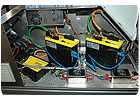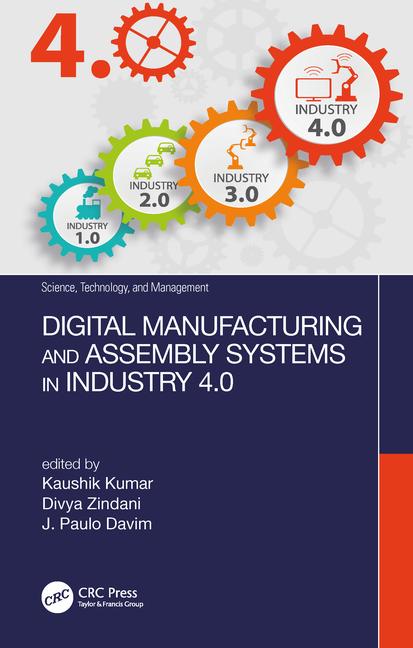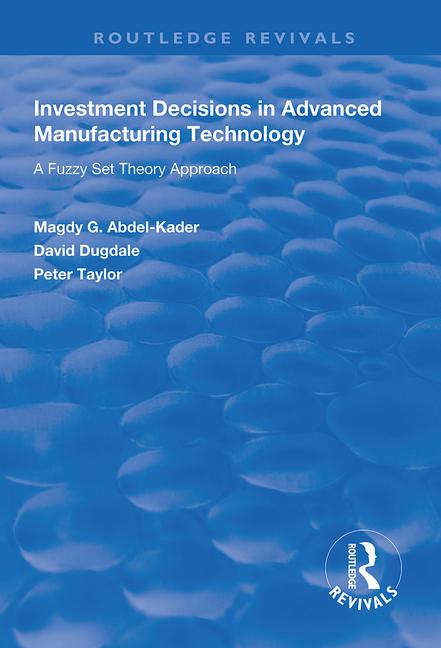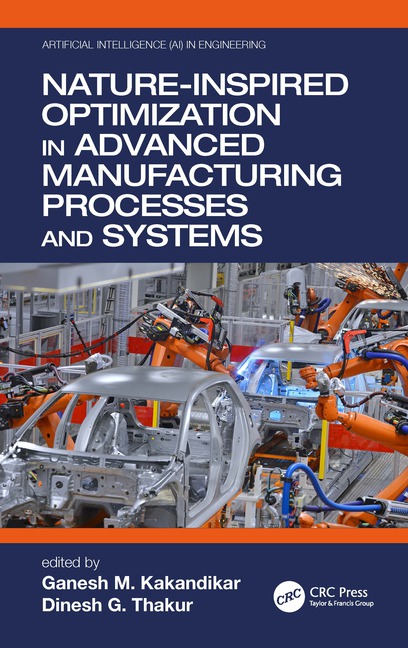
The Dyesol Die Profiling Machine features a motion controller and two servo drives networked via Ethernet, EMC filters and power supply. Photo courtesy Baldor Electric Co.
Presently, the Dyesol group is focused on commercializing DSC technology worldwide to help solar cell manufacturers develop their own products, implement low-cost mass production systems and improve cell performance.
DSCs are manufactured by preparing glass outer skins with a printed circuit on one side, followed by a layer of porous titanium dioxide and application of the dye to the entire surface. The Dyesol Dye Profiling Machine is used to accurately remove sections of the applied medium from the glass panel. This results in multiple individual cells on the glass panel, joined by the printed circuit. The cell is completed by vacuum backfilling with the electrolyte (iodide) and sealing with thermoplastic. A completed DSC cell can produce an electrical current.
To help calculate the motion control requirements of the DSC profiling machine, Dyesol worked with Baldor Electric Co. Baldor also assisted Dyesol in motor selection.
Several Baldor motion control products are used in the machine, including a NextMove e100 multiaxis controller, 12-inch touch-screen control panel, 2 by 3 amp MicroFlex servo drives, two BSM brushless servomotors and built-in Mint software that is the basis of operational software developed by Dyesol.
“The NextMove e100 is capable of controlling up to 16 interpolated axes, yet cost-effective for our two-axis application,” says Anthony Oh, senior design engineer at Dyesol’s headquarters in Queanbeyan, New South Wales, Australia. “We also like the MicroFlex e100 Ethernet-based servo drives because now we can connect all of the limit and home position switches back to the MicroFlex servo drives.
The BSM R-series motor was chosen for the X axis because it’s compact and provides high acceleration and a high torque-to-inertia ratio. For the Y axis, a more powerful C Series motor was required because it’s mounted under the table and connects a cogged belt drive to the spindle.
The BSM C-series motor has a ring magnet rotor made of neodymium that delivers premium torque output at a low cost. Both motors offer high-precision positioning.
Dyesol programmed the DSC profiling machine and chose to make it a self-contained, stand-alone unit. They downloaded the operating routines to the NextMove e100 controller, although it is capable of interfacing to an external PC if that suits the application. They also developed an interface with the touch-screen panel mounted on the machine.
“The interface we developed is simple yet complete,” says Oh. “It allows the machine to be operated by relatively unskilled personnel after just a small amount of training. All of the necessary adjustments to allow for different shapes and sizes of DSCs are easily made and selected on the HMI screen, and operation is fully automatic and self-managed after the start command.”
For more information on motion control systems, call 479-646-4711 or visit www.baldor.com.



